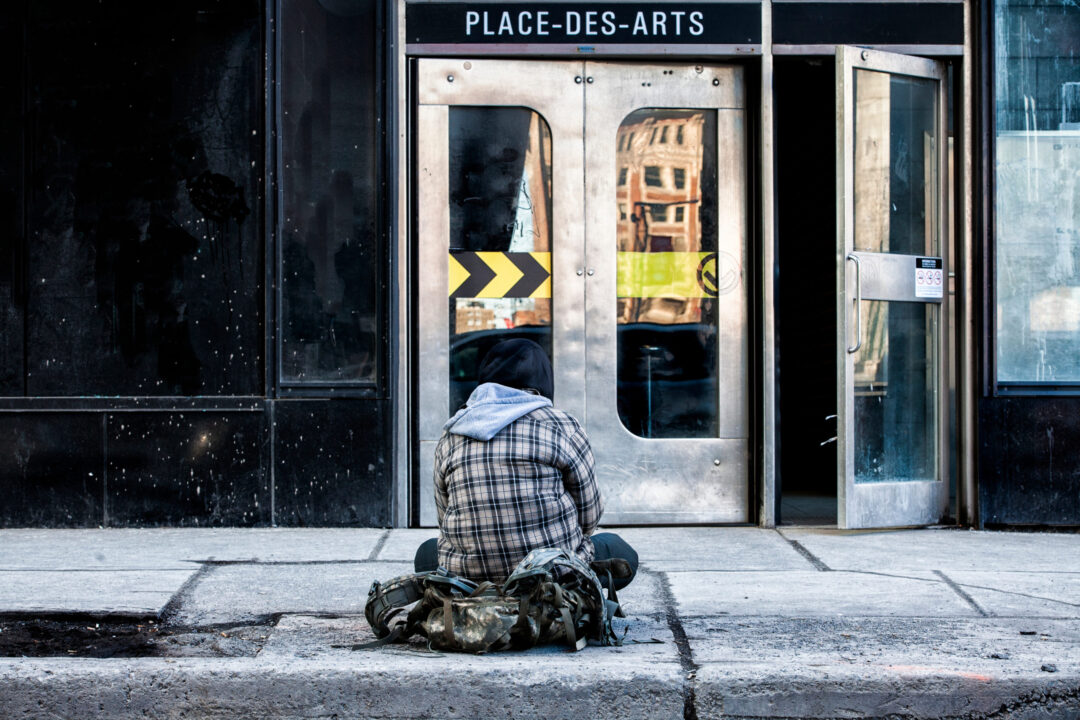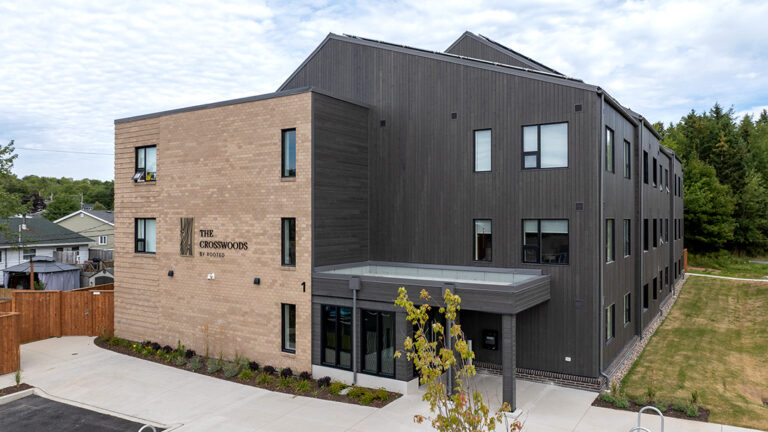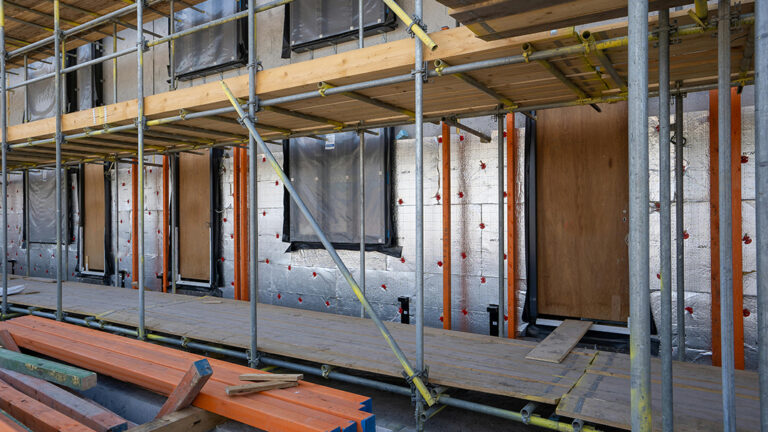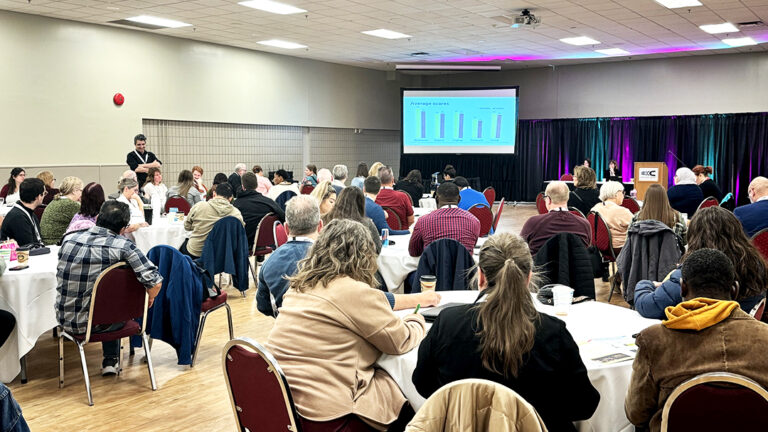For a 145-year-old organization, it takes courage and a little humility to begin a process of profound self-examination. Accueil Bonneau, an iconic Québec organization in the fight against homelessness, has taken this path to aid in achieving its ultimate goal: ending chronic homelessness in Montréal.
by Andréanne Chevalier
L’Accueil Bonneau, which has been dedicated since 1877 to the unsheltered population in Montréal, has had its share of transformations and trials. One hundred and forty-five years later, it has launched a new process to refocus its mission; a sign that it’s still active and listening.
Fiona Crossling became executive director of Accueil Bonneau in March 2020, at the very beginning of the Covid-19 pandemic. “The organization has had some turbulent moment in its history in recent years, with a lot of turnover. It was a good time to renew some of the basics, like how the board works, rebuild the steering committee and review almost everything.”
Accueil Bonneau embarked on a strategic planning project, with the help of the Community Housing Transformation Centre, which granted it $48,000 from our Sector Transformation Fund.
“Our focus is really on ending chronic homelessness, with other Montréal partners who believe in it,” Fiona explains. “To do that, it takes a renewal, not only in our intake, but in the way we work with people so that they are well, so that they can develop, and also in our operations, our management of buildings.”
To renew itself effectively, the organization has sought the active participation of different types of people around it: donors, volunteers, supporters, residents and partners. Almost 100 people were surveyed and shared their views on how the organization works and what they perceive as its strengths and weaknesses.
For Nathalie Ross, director of strategy and partnership at Accueil Bonneau, “it is the multitude of these insights that gives us a better idea of what we could do in the future to have a greater impact on people who are homeless.” The result is a shift to more collaborative management. “You have less absolute control. I think it’s a good risk-taking exercise.”
It was also very important for the organization to “involve more people with lived experience of homelessness in the thinking and decision-making processes internally,” says Nathalie. The goal, Fiona adds, is for people who are homeless to be “at the heart of what we want to do and therefore to have a much greater voice than we have seen in the past.”
Other objectives for organizational transformation include the development of partnerships and creating a culture of ongoing evaluation and assessment.
COVID taught ‘what doesn’t work’
L’Accueil Bonneau aspires to provide assistance to people experiencing homelessness that takes into account their life plans and promotes their reintegration into society through a long-term housing approach.
“That said, in Covid and in the winter when it’s -20°C as it is now, it’s clear that these are things that are not feasible to put in place right now,” says Ross. “We are stuck with the approach promoted by governments, which are emergency measures.”
“[With] Covid,” Fiona adds, “we’ve all learned great lessons from what doesn’t work in homelessness […] How it works in emergency shelters right now is that you’re going to put people in beds and they have to leave at 7 a.m. to find breakfast and lunch, after that, we’ll have to find a bed for the night. It’s just a no-solution cycle.”
Together with other organizations, Accueil Bonneau is working to find and implement more effective and sustainable solutions over time that will allow them to break free from constant crisis-management situations. One aspect of this collaborative effort to better meet needs is the effective management of information (intake data, support plans, occupancy rates, etc.) to plan coordinated access to services.
Capacity to double
Accueil Bonneau is also working on a new housing offer in partnership with the Société d’habitation et de développement de Montréal. The new building, Le Christin, will almost double the organization’s housing capacity. It will be located in downtown Montréal, near the Université du Québec à Montréal, and will provide 114 units for 118 people. It is rare in this type of housing to have more than one person in a room, Fiona notes.
Unlike the other buildings at Accueil Bonneau that respond to a more homogeneous clientele, this project aims to achieve a mix of resident profiles. First, because “it’s more natural,” says Fiona, adding that diversity is essential for a project of this scale to work well. In collaboration with UTILE, which creates and promotes student housing, there will be spaces for at-risk or homeless students. There will also be housing for people from the LGBTQ2+ community.
If all goes according to plan, Le Christin is expected to open in early 2023.
“Just The Christin is immense [as a project],” Fiona notes. “And it’s not just Le Christin that we’re trying to transform! In fact, it may be that Le Christin is the easiest part, because everything will be new. We’re really looking forward to it.”



